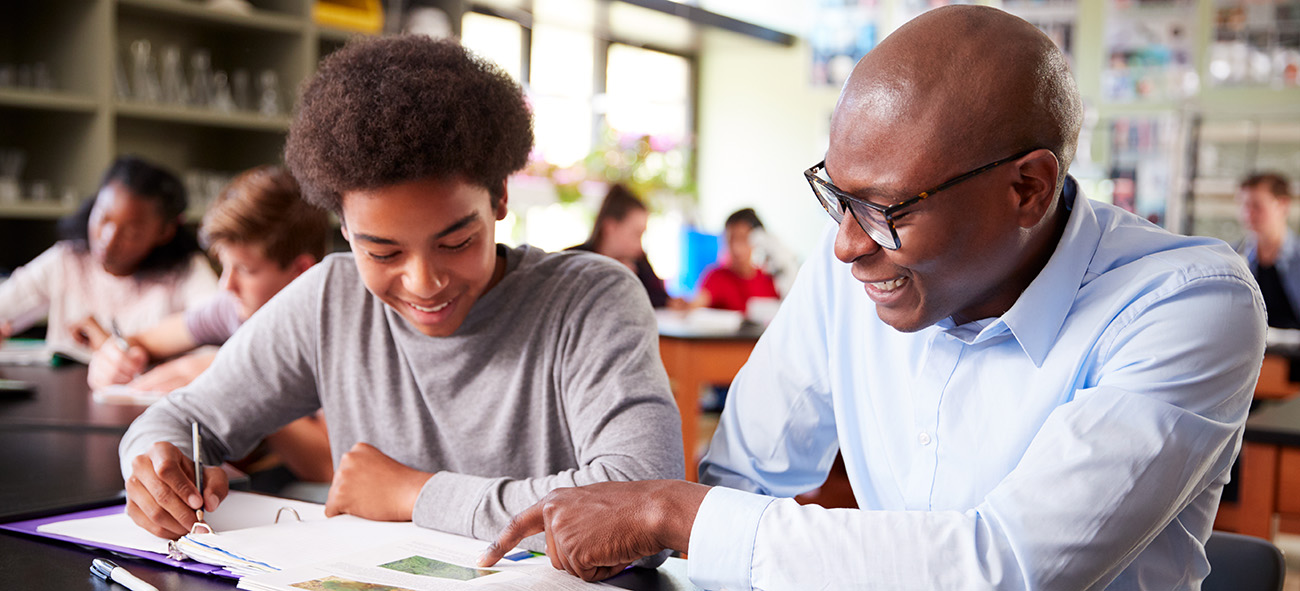Spotlight on Personalized Learning

Now more than ever, there is a need to build educators' capacity to teach students in remote and hybrid instructional environments. Evidence-based personalized learning practices are inherently flexible and adaptable and can be key to mitigating projected system-wide learning loss due to the pandemic.
Many school districts across the nation are considering or are implementing personalized learning approaches. Research has shown that students who feel supported and in charge of their own learning are more likely to attend school and form meaningful connections with peers and teachers (Education Elements). Personalized learning builds student agency, allowing students to adjust more readily to disrupted learning environments (Center for Collaborative Education), while also allowing for greater equity than traditional models by expanding opportunities for all students—and specifically improving access to high-quality learning for historically underserved students (U.S. Department of Education). Moreover, technology can be a powerful tool in personalized learning, which is especially relevant now as many students are learning remotely (U.S. Department of Education).
What Is Personalized Learning?
Personalized learning can refer to a wide range of models and approaches that provide “a structure that creates flexibility, allows students to progress as they demonstrate mastery of academic content, regardless of time, place, or pace of learning” (U.S. Department of Education). While there are many definitions and frameworks for personalized learning, they share the same central themes:
- Student-centered learning
- Student agency
- Demonstrated mastery of competencies
- Flexible learning, including remote/virtual and hybrid learning models
- Supporting the whole child
AIR’s approach to personalized learning draws on our rigorous research base and our experience facilitating educational system change across the nation and around the world. We support states, districts, and schools as they navigate the unique challenges and opportunities in implementing personalized learning programs, as well as identify areas where the field would benefit from further research.
How AIR Can Help
We offer technical assistance and an interdisciplinary team of experts who will work side-by-side with education leaders to facilitate and grow personalized learning programs. We also provide rigorous, adaptive research and evaluation expertise to examine implementation and the impact of personalized learning approaches. Our services include:
- Differentiated strategic planning and coaching driven by stage of readiness, budget, and timeline—and in alignment with local priorities;
- Personalized professional development design and delivery to support teacher growth and implementation of personalized learning approaches;
- Design and facilitation of communities of practice and networked improvement communities focused on personalized learning;
- Evaluating the implementation and impact of personalized learning, contributing to the evidence base for personalized learning;
- Developing measures of student learning that can be used as part of existing personalized learning strategies; and
- Studying programs designed to prepare and support educators as they implement personalized learning approaches.